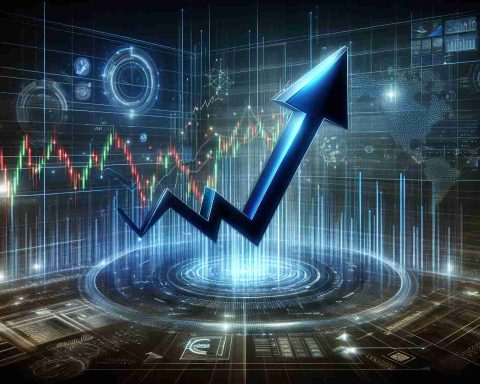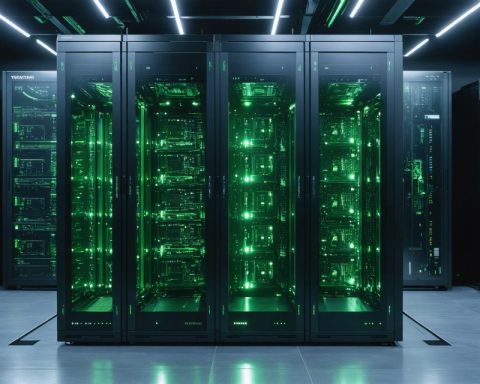Gdańsk Takes Center Stage in Semiconductor Innovation
Poland is rapidly asserting itself as a frontrunner in Europe’s semiconductor industry, with the Tri-City emerging as a key hub. A significant part of this transformation is driven by MEP Solutions’ strategic investment in Gdańsk, which illustrates Poland’s adeptness at luring top-tier technology ventures.
Poland’s Boom in High-Tech Investments
With a focus on fostering advanced technology, Poland has made significant strides in developing its semiconductor sector. As demand for semiconductors skyrockets globally amid geopolitical complexities, Poland stands out by offering a diversified supply chain solution.
MEP Solutions Anchors in Gdańsk
MEP Solutions’ decision to establish a new facility in Gdańsk highlights several advantages the city offers. The company, renowned for its construction and infrastructure modules for semiconductor plants, was attracted to the Tri-City due to its highly skilled workforce, robust transportation infrastructure, and its gateway proximity to Western Europe. Set to open in 2025, the factory aims to create hundreds of jobs and strengthen MEP Solutions’ international production capabilities. Its location near the significant Baltic Hub seaport further underscores the facility’s strategic value by enhancing global market access.
Strategic Partnerships Fuel Growth
The Polish Investment and Trade Agency (PAIH) played a pivotal role in securing this investment, demonstrating Poland’s dedication to attracting global enterprises. The effective negotiation process was supported by PAIH’s Foreign Trade Office in Tel Aviv, which highlighted Poland’s advantageous positioning to prospective investors.
Tri-City: A Magnet for High-Tech Ventures
Home to major players like SK hynix and Intel, the Tri-City is becoming synonymous with technological advancement. Enhanced logistics infrastructures, such as the Baltic Hub and expansive road networks, make it an optimal location for companies aiming to harness global production capabilities.
Poland’s Semiconductor Surge: Unseen Impacts and Real-Life Controversies
The Rising Global Stakes of Semiconductor Essentials
While Poland’s proactive stance in the semiconductor industry is remarkable, there are underlying dynamics affecting communities globally. As countries race to become key players in tech innovation, the semiconductor industry’s evolution continues to transform economies, societies, and geopolitical landscapes.
Emerging Advantages and Disadvantages
The semiconductor industry boom, while offering numerous advancements, presents both immense opportunities and challenges:
Advantages:
1. Economic Growth and Job Creation: Poland’s emerging semiconductor landscape promises increased employment opportunities and economic upliftment. The influx of global tech giants boosts local economies, encourages talent retention, and sparks nationwide growth.
2. Technological Advancements: With increased investments, technological capabilities of regions like Tri-City can leapfrog, catalyzing further innovation in AI, IoT, and smart technologies.
Disadvantages:
1. Environmental Concerns: The semiconductor manufacturing process involves toxic chemicals and significant water usage, potentially impacting local ecosystems. Regions must balance industrial expansion with environmental stewardship.
2. Over-reliance on a Single Industry: As Poland bets heavily on semiconductors, there’s a risk of economic vulnerability due to potential industry downturns.
What Does This Mean for Communities?
The semiconductor industry’s aggressive expansion affects multiple facets of society. For instance, communities surrounding new industrial hubs in the Tri-City could experience rapid urbanization. While this growth brings infrastructural improvements, it may also lead to challenges like housing shortages and increased living costs for long-standing residents.
Moreover, the global semiconductor race encourages a skills-oriented workforce, urging educational institutions to pivot towards STEM-focused curricula. This transition might drive innovation but could marginalize arts and humanities sectors.
Controversies Surrounding Global and Local Impacts
One ongoing debate examines the ethical implications of prioritizing semiconductor production amid climate consciousness. Critics argue that countries should focus equally on sustainable practices as they expand technologically. Furthermore, local controversies about land use and community displacement often surface when new facilities are built, urging policymakers to engage in transparent decision-making.
Frequently Asked Questions
1. Why is the semiconductor industry so crucial?
Semiconductors power countless devices that form the backbone of digital life. From smartphones to advanced medical equipment, they are fundamental to modern civilization.
2. Can Poland sustain this growth long term?
It depends on continuous investment in innovation, sustainable practices, and maintaining a diversified economy to mitigate potential risks related to over-dependence.
3. What are global players doing differently?
Regions like Taiwan and South Korea focus on integrating eco-friendly technologies in semiconductor manufacturing, balancing growth with environmental responsibility.
For further insights into the semiconductor industry and global tech investments, you can visit SEMI and IDC. These platforms provide deeper dives into the transformative technological trends shaping our world.



















